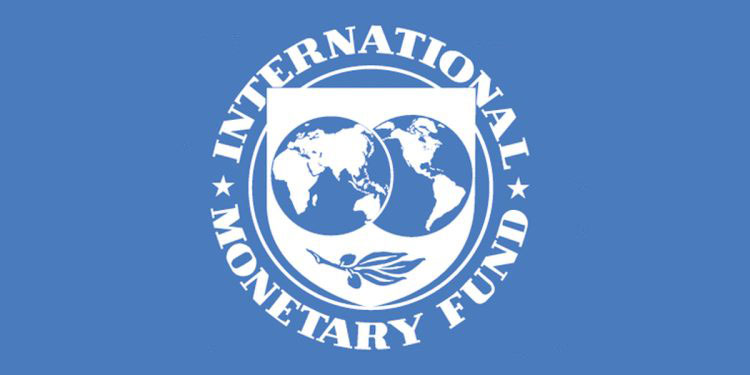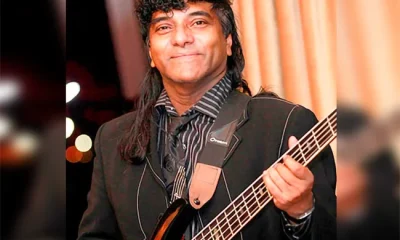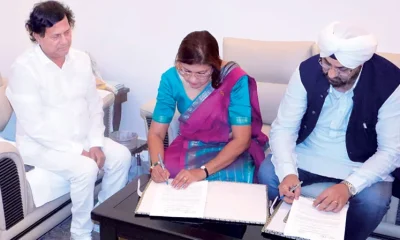News
TNA, GTF seek TN and Indian backing to achieve political goals

The TNA and the GTF, in a joint statement issued in Colombo and London over the weekend, declared that they looked forward to directly engaging the Tamil Nadu government and further strengthening the engagement with the government of India in line with overall efforts to settle the Tamil national question in Sri Lanka.
Tamil people in Sri Lanka aspire to a degree of self-rule in the areas of their historic habitation (the North-East) and believe this empowerment is fundamental for their equal citizenship in Sri Lanka and to protect their unique identity in the island – a position that always resonated with Tamil Nadu and Indian thinking and policy positions, they said.
The following is the text of the statement: “It has not even been a year since M. K. Stalin became the Chief Minister of Tamil Nadu, yet the mark that the Dravida Munnetra Kazhagam (DMK) leader has made in his State and among Tamils worldwide is unmistakable.
Whether it was ably handling the second wave of the pandemic, or the progressive social justice agenda that includes economically uplifting the underprivileged while removing caste and gender barriers in many aspects of lives, or the bold vision of making Tamil Nadu ‘a one-trillion economy’ by 2030 – Chief Minister Stalin has become the envy of many leaders across India.
With the theme of ‘let Tamil bind us together’, Chief Minister Stalin has taken many meaningful steps towards promoting the commonalities and cohesiveness of the global Tamil community, arguably more so than any other Tamil leader in recent history. Appointing a dedicated Minister, viz., K.S. Masthan, whose portfolio includes Welfare and Rehabilitation of Non-Resident Tamils; declaring January 12 as the World Tamil Diaspora Day with Chief Minister Stalin inaugurating the event; taking steps to institute Tamil studies in international universities, including through donations towards the establishment of Tamil Chairs at Harvard University and the University of Toronto – are just a few examples.
The TNA and the GTF hold Chief Minister Stalin in high esteem for his inspiring leadership of the global Tamil community.
From the perspective of Tamils from Sri Lanka, including those living in Sri Lanka and in the Diaspora – the approach adopted by the present Tamil Nadu government is commendable. They are grateful for the invitations extended to the Member of Parliament from the TNA, M. A. Sumanthiran, and the President of the Canadian Tamil Congress (CTC), Sivan Ilangko for the inaugural World Tamil Diaspora Day event last month. The participation and felicitation by the Tamil Nadu Minister Hon. K. S. Masthan at the annual Thai Pongal Celebrations conducted by the CTC on January 29, 2022 is equally pleasing.
Chief Minister Stalin’s announcement last August regarding Ilankai Thamizhar refugee camps, stating the following was a welcome gesture of notable significance. “They are not orphans; we are there for them and hereafter they will be called Ilankai Thamil rehabilitation camps” This announcement was backed up with a generous allotment of Rs. 317 crores for their welfare schemes, with a promise to improve their living standards further. We also note with gratitude Chief Minister M.K. Stalin’s strong public statements, in his capacity as Opposition leader, exerting pressure on India to support the UNHRC resolution on Sri Lanka during the March 2021 session.
Chief Minister Stalin’s supportive approach towards the Tamil struggle in Sri Lanka is consistent with the long tradition of Dravidian political leaders of Tamil Nadu, particularly his illustrious father, late Hon. Kalaignar M. Karunanidhi. Tamil people in Sri Lanka and their political leaders looked upon the leaders of Tamil Nadu for guidance, support and inspiration. Their support – directly, as well as through the Government of India – has always been a great source of comfort for the Tamil people living in Sri Lanka.
We remember with gratitude, the leadership shown by the late Hon. M. Karunanidhi – the initiatives to protect lives, property, and political rights of the Tamil people following the 1983 anti-Tamil riots; the late Chief Minister using his influence to prod different Indian Prime Ministers to find a political solution to address the Tamils’ quest for equality, justice, peace, dignity, and devolution of power; and DMK MPs’ consistently voicing for the Ilankai Thamizhar in the Lok Sabha over decades. We are also conscious that the DMK support for the Tamil cause continued despite many challenges it faced in the Indian Union, including the dismissal of the DMK government in 1991 relating to the Tamil peoples’ problems in Sri Lanka.
We are acutely conscious of the difficulties and degrading treatments encountered by the leaders of the mainstream Dravidian Movements in Tamil Nadu, many of such regrettable actions originating from unrealistic and hardline positions adopted by some from both sides of the Palk Strait. However, the overwhelming majority of the Tamils of Sri Lankan origin have always been appreciative and grateful for the support provided by the leaders of Tamil Nadu, and also recognise their limitations in shaping every event of the past. Such understanding is growing in strength and will help solidify the bonds and mutual respect enjoyed by the people and the leaders of both communities.
Tamils in Sri Lanka are, once again, at a critical point. Twelve years after the end of the war, their economic prospects are dismal. The progress on war-related accountability is marginal at best. Tamils face many existential challenges – to protect their land and to preserve their identity in the Northern and Eastern Provinces against rampant militarisation and state sponsored initiatives aimed at altering regional demography. It is feared a new constitution under preparation could further weaken the status of the Tamil people, especially by abolishing or weakening the Provincial Councils – the only constitutional power devolution arrangement the Tamil people achieved with direct Indian involvement.
It is in such a dire situation that we are looking for guidance and support from India and Tamil Nadu.
India has significant leverage over Sri Lanka and has repeatedly called upon Sri Lanka to address the legitimate aspirations of the Tamil people for equality, justice, peace, dignity, and meaningful political devolution. India has emphasised on many occasions, including during the March 2021 UNHRC sessions, about its two-pillar policy of supporting Sri Lanka’s unity and territorial integrity, and its commitment to Tamils’ aspirations, and that these were not mutually exclusive choices.
Tamil Nadu has always been critical in setting Indian policies towards Sri Lanka, and it is in this context that a path setting and pragmatic approach adopted by Chief Minister Stalin will give us enormous comfort. A continued focus on this issue at this critical time is crucial for the long-term peace and prosperity of the Tamil people in Sri Lanka. It is also intrinsically linked with the interests of Tamils on both sides of the Palk Strait, and the greater India.
Latest News
Sun directly overhead Delft, Pooneryn, Elephant pass and Chundikulam at about 12:10 noon today (14th)

On the apparent northward relative motion of the sun, it is going to be directly over the latitudes of Sri Lanka during 05th to 14th of April in this year.
The nearest areas of Sri Lanka over which the sun is overhead today (14th) are Delft, Pooneryn, Elephant pass and Chundikulam at about 12:10 noon.
Business
IMF staff team concludes visit to Sri Lanka

An International Monetary Fund (IMF) team led by Evan Papageorgiou visited Colombo from April 3 to 11, 2025. After constructive discussions in Colombo, Mr. Papageorgiou issued the following statement:
“Sri Lanka’s ambitious reform agenda supported by the IMF Extended Fund Facility (EFF) continues to deliver commendable outcomes. The post-crisis growth rebound of 5 percent in 2024 is impressive. Inflation declined considerably in recent quarters and has fallen to ‑2.6 percent at end-March 2025. Gross official reserves increased to US$6.5 billion at end-March 2025 with sizeable foreign exchange purchases by the central bank. Substantial fiscal reforms have strengthened public finances.
“The recent external shock and evolving developments are creating uncertainty for the Sri Lankan economy, which is still recovering from its own economic crisis. More time is needed to assess the impact of the global shock and how its implications for Sri Lanka can be addressed within the contours of its IMF-supported program.
“The government’s sustained commitment to program objectives is ensuring policy continuity and program implementation remains strong. Going forward, sustaining the reform momentum is critical to safeguard the hard-won gains of the program and put the economy on a path toward lasting macroeconomic stability and higher inclusive growth.
“Against increased global uncertainty, sustained revenue mobilization efforts and prudent budget execution in line with Budget 2025 are critical to preserve the limited fiscal space. Boosting tax compliance, including by reinstating an efficient and timely VAT refund mechanism, will help contribute to revenue gains without resorting to additional tax policy measures. Avoiding new tax exemptions will help reduce fiscal revenue leakages, corruption risks and build much needed fiscal buffers, including for social spending to support Sri Lanka’s most vulnerable. Restoring cost recovery in electricity pricing will help minimize fiscal risks arising from the electricity state-owned enterprise.
“The government has an important responsibility to protect the poor and vulnerable at this uncertain time. It is important to redouble efforts to improve targeting, adequacy, and coverage of social safety nets. Fiscal support needs to be well-targeted, time-bound, and within the existing budget envelope.
“While inflation remains low, continued monitoring is warranted to ensure sustained price stability and support macroeconomic stability. Against ongoing global uncertainty, it remains important to continue rebuilding external buffers through reserves accumulation.
“Discussions are ongoing, and the authorities are encouraged to continue to make progress on restoring cost-recovery electricity pricing, strengthening the tax exemptions framework, and other important structural reforms.
“The IMF team held meetings with His Excellency President and Finance Minister Anura Kumara Dissanayake, Honorable Prime Minister Dr. Harini Amarasuriya ; Honorable Labor Minister and Deputy Minister of Economic Development Prof. Anil Jayantha Fernando, Honorable Deputy Minister of Finance and Planning Dr. Harshana Suriyapperuma, Central Bank of Sri Lanka Governor Dr. P. Nandalal Weerasinghe, Secretary to the Treasury Mr. K M Mahinda Siriwardana, Senior Economic Advisor to the President Duminda Hulangamuwa, and other senior government and CBSL officials. The team also met with parliamentarians, representatives from the private sector, civil society organizations, and development partners.
“We would like to thank the authorities for the excellent collaboration during the mission. Discussions are continuing with the goal of reaching staff-level agreement in the near term to pave the way for the timely completion of the fourth review. We reaffirm our commitment to support Sri Lanka at this uncertain time.”
News
New Year dawns at the auspicious time of 03.21 a.m. tomorrow (14).

The Sinhala and Tamil New Year will dawn at the auspicious time of 03.21 a.m. tomorrow (14th Monday).
The auspicious time to light the hearth and prepare the first meal is at 0404 am on Monday (14) facing South.
The auspicious hour to commence work, perform the first transactions and partaking of the first meal is at 0644 am facing South dressed in white coloured clothes.
-

 News2 days ago
News2 days agoSuspect injured in police shooting hospitalised
-

 Features3 days ago
Features3 days agoRobbers and Wreckers
-

 Features5 days ago
Features5 days agoSri Lanka’s Foreign Policy amid Geopolitical Transformations: 1990-2024 – Part III
-

 Midweek Review5 days ago
Midweek Review5 days agoInequality is killing the Middle Class
-

 Business2 days ago
Business2 days agoSanjiv Hulugalle appointed CEO and General Manager of Cinnamon Life at City of Dreams Sri Lanka
-

 Features6 days ago
Features6 days agoA brighter future …
-

 Business4 days ago
Business4 days agoNational Anti-Corruption Action Plan launched with focus on economic recovery
-

 News5 days ago
News5 days agoIChemC signs MoU with KIIT, India











